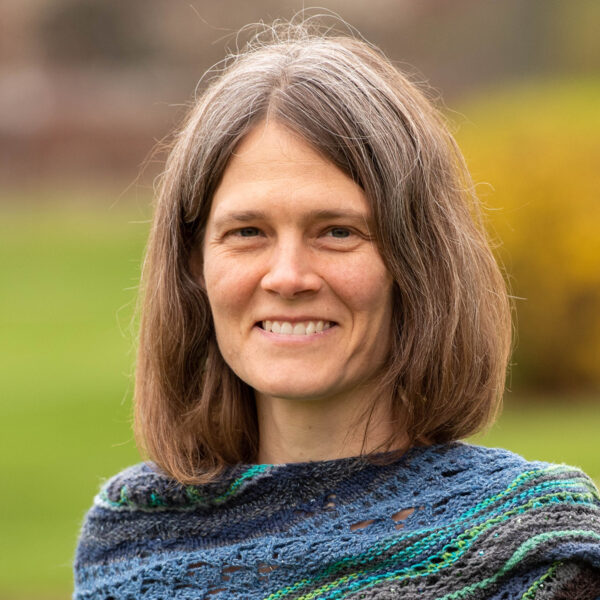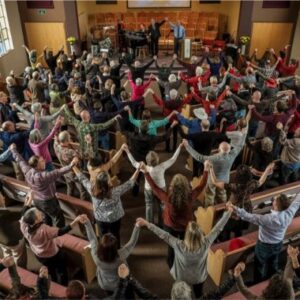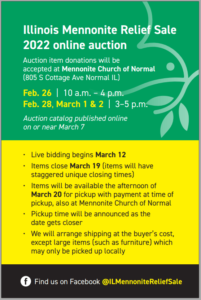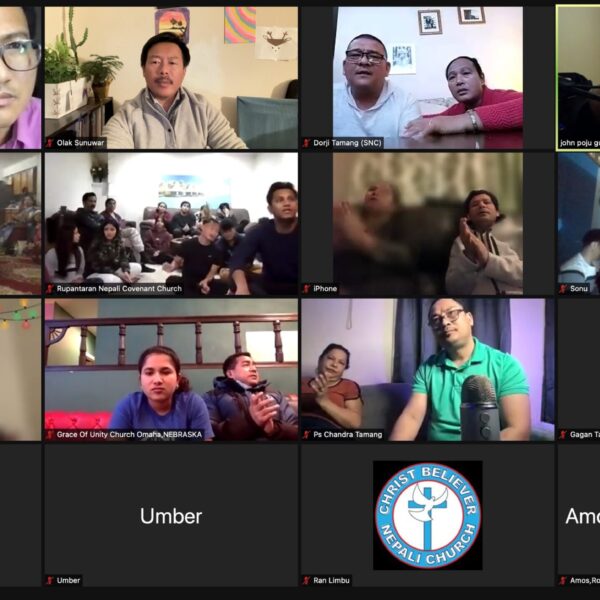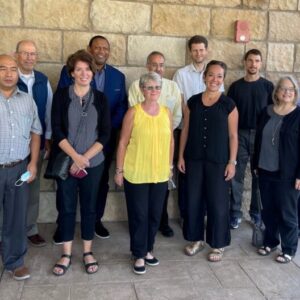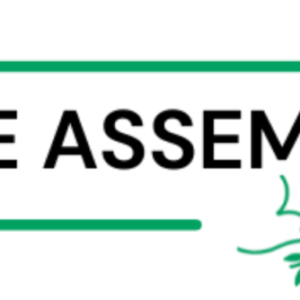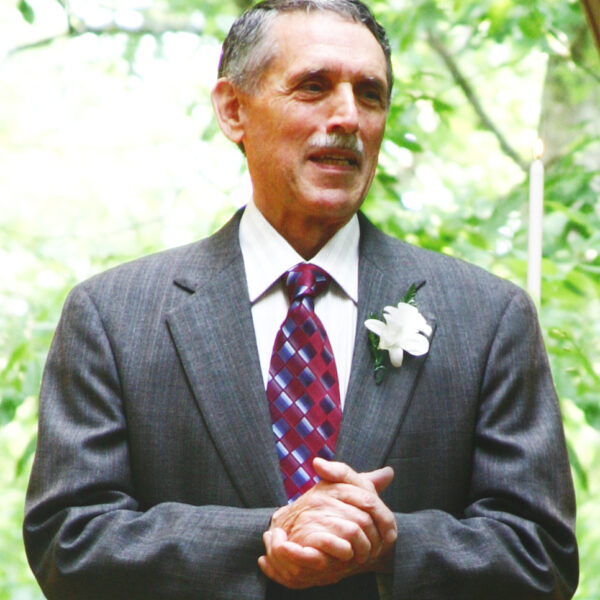2022 Nepali Ministry Update
Jaimashi dear prayer partners,
Thank you very much for your prayers and support for the Nepali ministry. God has been doing wonderful things among Nepali speaking community. This ministry has been a bridge to the Midwest Nepali churches where we can work for a broader mission.
Nepali Ministry activity report
Nepali Outreach Update
Dear co-laborers in Christ, Jaimashi!
Thank you for your continuous prayer and support for the ministry of Living Water Community Church (LWCC). I would like to share our Nepali outreach ministry report from the last two months, January and February 2022. Apart from the Bible Study, Prayers, and Leadership development training, I was also involved in finding jobs for the Nepali community members and counseling Nepali pastors who are seeking more advanced theological training.
History of Resolution for Repentance and Transformation – Executive Board
DALLAS, Texas (Mennonite Church USA) — The Executive Board (EB) of Mennonite Church USA (MC USA) looked to the future of the denomination during its first meeting of the biennium on Sept. 23-25, 2021. During the hybrid online and in-person session, EB members focused on board development, collaborative agency relationships, congregational leadership cultivation and the upcoming special delegate session on May 27-30, 2022 in Kansas City, Missouri. They also resolved an impasse in the denomination’s resolution process.
For more information, visit
MC USA Executive Board looks toward future with 7 new members
MCUSA May 2022 Special Assembly
Webinars
Coming soon!
Here is the tentative schedule for upcoming webinars. More details and registration information coming as soon as it is available. Webinars will be held at 7.p.m. ET / 4 p.m. PT. All webinars will be recorded.
Date Subject
Jan 10 Communicating Across Differences
Jan 24 Role of Resolutions
Jan 31 Biblical Discernment
Feb 7 Review of the Justice Resolution
Feb 14 Review of Membership Guidelines Resolution
Feb 21 Review of the Repentance & Transformation Resolution
Feb 28 Review of the ADN Resolution
March 4 Call to Prayer and Fasting
March 28 The Role of Delegates
April 4 Expectations of the Special Delegate Assembly
Travel and safety info coming soon.
Meat Canning 2021 at Freeport
3416 East Brick School Rd., Freeport, IL 61032
815-255-0943 freeportmennonitechurch@gmail.com
Kenneth Hawes, Pastor; pastor.fmc.3416@gmail.com
Greetings, Brothers and Sisters in Christ,
We are pleased to inform you that Freeport Mennonite Church (FMC) is planning to host the Mennonite Central Committee
(MCC) Canner again this year for the 2021-2022 canning season. As our churches, communities, and nation continue to deal
with issues locally and globally, we plan to come together and make positive lasting relationships while helping feed those in
need once again this year.
We feel the need for aide is greater now more than ever, due to the Pandemic. What a unique way to spread God’s love in times
of need! So, what does this mean?
Throughout the year, especially during the months of October and November, we collect donations for the meat canning project.
The Canning Ministry at Freeport Mennonite is an above budget project, so it is all done by donations. The more donations we
receive the more people we can help. A donation of $5.45 will fill a can or $130 will fund a box of finished product. We are
excited to announce that we have been given 5 days to can. This will depend on volunteers and funding support.
As the 75th year of meat canning begins, FMC and MCC are once again partnered up for the 69th year to encourage others to get
involved with this mission project. This year’s canning project is going to continue to look a little different as you can imagine
due to the ongoing pandemic! There will be some changes and requirements that must be followed in order for us to can and
keep everyone as safe as possible and keep the “Canner Guy’s” healthy so they can keep canning at other stops. Without them,
canning does not happen! We cannot possibly list all the changes and guidelines in this letter, and changes are bound to happen
as we get closer to the time of canning. With that being said, we encourage everyone to call or have a group representative call
a member of the FMC canning committee and ask questions ahead of time and schedule a time to come help can if you are
healthy and willing to follow the guidelines!
Once again, we would like to open this project to the community and area churches. If you or anyone in your church would
like to serve in this way, we will be canning December 13-17. 2021 (Mon – Fri) at Freeport Mennonite Church, 3416 E Brick
School Rd., Freeport, IL 61032. Unfortunately, due to the guidelines we are not able to give tours as in the past. However, if
you have any questions please contact Larry Pfile (Meat Canning Coordinator) at 449-2516, Chad & Janet Weber (Asst Canning
Coordinators) at 291-6382 or 541-9397, David Graybill (Asst Canning Coordinator) at 238-7208 or Tim Bastian (Asst Canning
Coordinator) at 821-2469. If you are interested in someone coming to talk about the canning project at your church or group,
please feel free to contact one of the above individuals.
Freeport Mennonite Church set a church record last year and produced 23,283 cans from 35,747 pounds of chicken last year.
Ten percent of the cans were held back for local missions at Freeport Area Church Cooperative (FACC), Rockford Rescue
Mission, Joseph’s Pantry and Salvation Army in Freeport, Lancaster Food Pantry of Lancaster Wisconsin, and Faith Community
Church of Davis. Ninety percent was sent to MCC to be used as they identify the needs in the United States and around the
world.
As I close this letter, I would like to say that this mission project is very much needed around the world. I would encourage
each one of you to be a part of this year’s canning project. Some of the canning shifts fill up fast, so I encourage you to call and
sign up for a shift before they are filled. Call (815) 291-6382 to sign up or go to freeportmennonitechurch.com to sign-up online.
WE NEED EVERYONE TO SCHEDULE A TIME TO COME THIS YEAR TO KEEP THE NUMBER OF VOLUNTEERS TO THE
MAXIMUM NUMBER ALLOWED AT ONE TIME.
May God bless you and keep you,
Chad Weber, FMC Assistant Canning Coordinator
Virgil Vogt, Obituary
Virgil Vogt, 87, Evanston, IL died November 2, 2021 after living with Parkinsons Disease 14 years. He was born in the mountains of Darjeeling, India to Mennonite missionary parents Milton Christian Vogt and Esther Bergey Kulp.
Virgil was educated in India at the Mt. Hermon boarding school and in the U.S. at Hesston (KS) Academy, class of 1950, and College, class of 1952. There he met his beloved life companion Joan Miller and they married in 1953 in Filer, Idaho. Virgil finished his degree at Goshen (IN) College in 1954, then moved on to Akron, PA to work at Mennonite Central Committee in alternative service. While attending revival services there Virgil felt a strong call to radically serve Christ. As a result, the Vogts returned to Goshen Biblical Seminary in 1956 for Virgil to pursue a Bachelor of Divinity degree, eventually completed in 1967. There they met John and Louise Miller, which served to foment ideas they shared for living a life of radical discipleship to Jesus. The Millers moved to Evanston, IL in 1957 to launch the intentional Christian community which became Reba Place Fellowship and the Vogts were not far behind.
After serving a pastorate at Leo Mennonite Church in Indiana, Virgil was moved by the visit of the leader of an indigenous renewal movement in India to follow his father into mission work in India. In 1962, after nine months at Reba Place with no visa forthcoming, they concluded God wanted them to stay there. Virgil rose into leadership roles as John Miller was called to serve in Ontario. He was instrumental in bringing the charismatic renewal movement to Reba Place. He became a traveling apostle, visiting Christian intentional communities in Spain, Korea, Canada and throughout the U.S.
In the 1960’s and 70’s Virgil lived with his family in a communal setting with a common treasury—a fundamental part of his vision. While Reba Place eventually created a congregational option in Reba Place Church, which Virgil pastored until 2002, Vogts continued to live in the Fellowship in communally-owned properties open to members and neighbors. In 1982 he wrote Treasure in Heaven, to describe the Christian goal of working to give, not to accumulate for personal security and desires, and to trust God to supply all needs.
Virgil contributed to the larger Mennonite world as managing editor of Concern: a Pamphlet Series for Questions of Christian Renewal from 1961-71, and by serving with the Illinois Mennonite Conference as a moderator and as conference minister to the Chicago Area Mennonite churches for a time until 2009. Many church leaders sought him out as a mentor and perceptive listener who made his conversation partners feel heard and valued.
Survivors include Virgil’s wife Joan; their five children, spouses and families: Dave and Joan Vogt, Beth and Eric Nordstrom, Barb and Craig Faris, Mary and Dan Hanchera, and Ruth and Phil Leaman; and his 14 grandchildren and three great-grandchildren. He is survived by siblings Laverne Nafziger, Elva Miller and Myra Danielson, with brothers Bernard and Merle preceding him in death. Celebration of Virgil’s life will be held Saturday, Dec. 4 at 1:30. (Visit rebaplacechurch.org website for further details.) To share memories, visit Virgil Vogt
2020 IMC Annual Business Meeting
The annual business meeting will be at Menno Haven Camp and Retreat Center. We want to meet together to review the work within our conference over the last year, hear from some of our church wide partners and plan for the future.
We will be approving a budget, reviewing IMC leadership’s practices regarding credentialing, affirming individuals for leadership teams, and hearing from conference minister David Miller and associate conference minister Martin Navarro. Congregations, please appoint your delegates (5 per congregation, plus pastors).
Please register by February 15. The registration cost is $11 to cover cost of the meal (cash or check due at registration on day of meeting). If someone is unable to pay the registration, please attend anyway – we’ll take care of the cost. All meeting materials are available on the conference website: https://illinoismennonite.com/
If you have questions, please contact Darrel at dlmiller@frontier.net
We hope to see you February 15 at Menno Haven.

